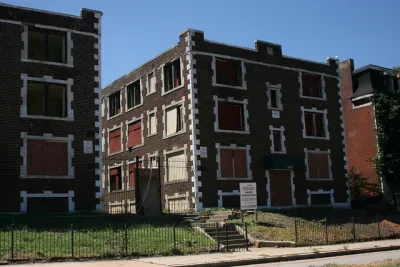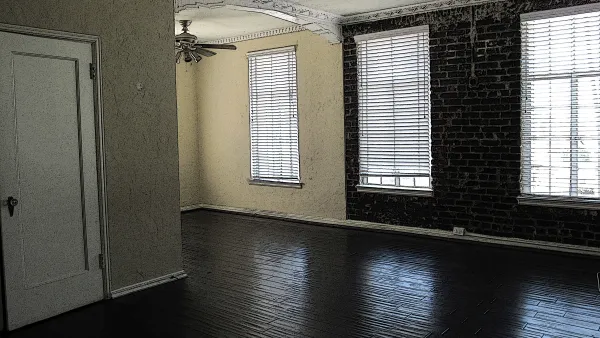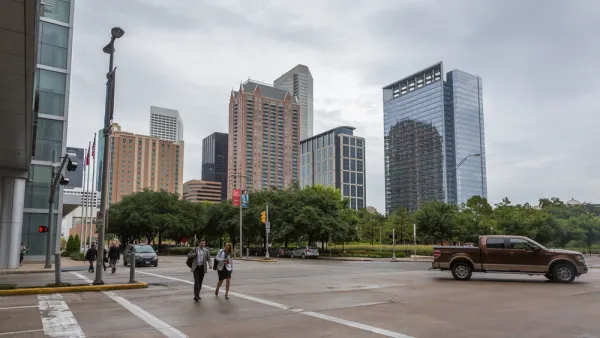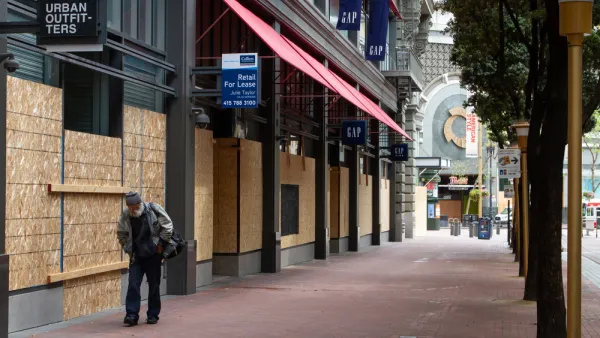While eviction moratoriums helped keep many tenants in their homes during the pandemic, the nation's renters have amassed a collective debt of over $52 billion, and many mom-and-pop landlords are struggling to hold on.

A year after governments across the country implemented eviction moratoriums, some landlords are struggling to pay their own bills as back rent piles up. "Many said they or their clients are dipping into savings to keep properties afloat and delaying maintenance or repairs because they can’t afford them." Writing in the Los Angeles Times, Andrew Khouri reports on the growing crisis.
Without financial assistance, many small landlords are falling behind on their own expenses, and some fear having to sell their properties. "One property owner in her 60s said she is considering taking a second job to avoid having to sell her two 20-unit buildings because she’s having difficulty keeping up with mortgage payments. An owner in his 80s said he’s already told his lender he can no longer meet payments and anticipates handing the 200 units he owns back to the bank."
While some "billionaire landlords" have seen their wealth increase over the course of the pandemic, smaller owners have fared much differently. A study by the Institute for Policy Studies shows that "L.A. property owners with five or fewer units were most likely, at 37%, to report an expectation of financial distress before three months. Owners with 30 or more units were least likely to expect financial distress before three months, but the percentage was still 20.3%." Dan Yukelson, executive director of the Apartment Association of Greater Los Angeles, said "missed rent is a hit to association members, who have also faced added costs over the last year including rising water bills and requests for repairs as homes became offices, classrooms and all-around sanctuaries during the pandemic."
Larry Gross, executive director of the tenant rights group Coalition for Economic Survival, argues that, while small landlords do deserve more relief, "current eviction restrictions should not be rolled back," and income verification requirements "would make more people homeless than the small number of individuals who might be taking advantage."
FULL STORY: Landlords are waiting for rent payments — and some can’t hold on much longer

Analysis: Cybertruck Fatality Rate Far Exceeds That of Ford Pinto
The Tesla Cybertruck was recalled seven times last year.

National Parks Layoffs Will Cause Communities to Lose Billions
Thousands of essential park workers were laid off this week, just before the busy spring break season.

Retro-silient?: America’s First “Eco-burb,” The Woodlands Turns 50
A master-planned community north of Houston offers lessons on green infrastructure and resilient design, but falls short of its founder’s lofty affordability and walkability goals.

Test News Post 1
This is a summary

Analysis: Cybertruck Fatality Rate Far Exceeds That of Ford Pinto
The Tesla Cybertruck was recalled seven times last year.

Test News Headline 46
Test for the image on the front page.
Urban Design for Planners 1: Software Tools
This six-course series explores essential urban design concepts using open source software and equips planners with the tools they need to participate fully in the urban design process.
Planning for Universal Design
Learn the tools for implementing Universal Design in planning regulations.
EMC Planning Group, Inc.
Planetizen
Planetizen
Mpact (formerly Rail~Volution)
Great Falls Development Authority, Inc.
HUDs Office of Policy Development and Research
NYU Wagner Graduate School of Public Service




























